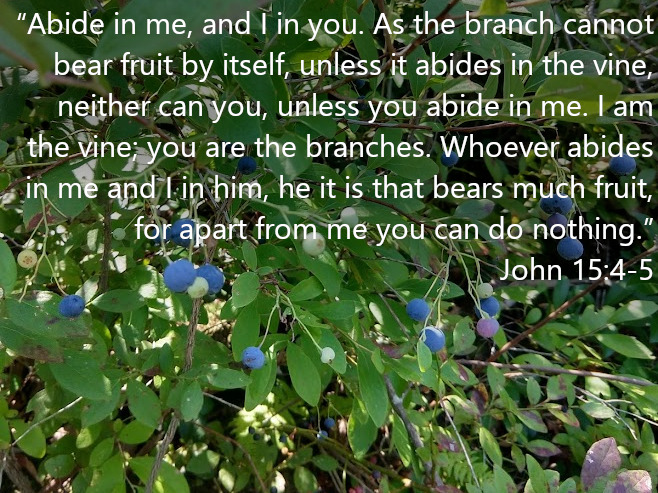
Union and Communion
Pastor Dave Monreal, Lead Pastor
“Abide in me, and I in you. As the branch cannot bear fruit by itself, unless it abides in the vine, neither can you, unless you abide in me. I am the vine; you are the branches. Whoever abides in me and I in him, he it is that bears much fruit, for apart from me you can do nothing.”
John 15:4-5
Let’s be honest, for a lot of people theology can be dry and boring. I’m not saying that it is, but sometimes how it is presented or the language used can cause us to get drowsy or lose interest. But we also know that theology is vital to the Christian life. Every time we look through the Scriptures to link together different passages on a particular topic, we are doing systematic theology! And you didn’t think you were a theologian.
Recently, I attended a pastor’s conference on “Communion with God.” No, it wasn’t about the Lord’s Supper, but that is related. Communion with God refers to our ongoing fellowship or relationship with God. Let’s consider two different but related concepts to help us understand. Sometimes we conflate the two truths, and it confuses us. Those two concepts are, “Union with God” and “Communion with God.” Other than a few extra letters, what is the difference?
“Union with God” is a term that describes our ongoing, objective relationship we have with God from the moment we genuinely trusted Christ and became a believer. We have been united with Christ. The most common, all-encompassing phrase the Bible uses to describe a Christian is that he is “in Christ.” We read it in the Bible so often we miss the significance. Our union with Christ is through grace based on the finished work of Christ so it is unchanging and unbreakable. We have been united with Christ in his death, burial, and resurrection. Our sin does not diminish or destroy our union with God. A person is either “in Christ” and he is going to heaven, or he is not in Christ and on his way to perdition.
“Communion with God” has to do with our ongoing fellowship and subjective experience of God day by day. We can draw close to Christ, or we can drift from Christ. This isn’t about our salvation but our ongoing closeness. Disobedience can harden our hearts and we do not experience the presence and love of Christ like we could. We can neglect prayer, Scripture reading, and week fellowship with other believers and God seems distant, but it is because of us, not Him. We may fall under the loving discipline of the Lord because of our waywardness and sin. Communion with Christ is the ongoing fellowship we have, and it can ebb and flow dependent on how much we put God first in our lives. But don’t forget this, God wants to have an intimate, close fellowship with us. There are times, even when we are pursuing Christ, that we may not sense his love and closeness. God at times may withhold this conscious presence to test us to see if our hearts are fully committed to him or if we are seeking him merely for the experience.
This is the difference too between the security of the believer and the assurance of the believer. The security of the believer is the objective reality that God will never let us go and we will never be separated from his love because we are united with him. Nothing can change God’s determination to finally save those who are genuinely his children. However, assurance is our subjective awareness of our salvation. If we are living in open rebellion and actively sinning against God, we should have not have a smug assurance that we are really believers. If someone has no evidence that he is born again, if he has no desire for God, if he has no desire for the things of God then his mere profession of faith should not give him comfort that he really knows the Lord. Nor should we give someone with no evidence that he is a believer a false assurance. Perhaps they genuinely know the Lord but neither they nor we can give them any sense of security that this is in fact the case. Only repentance and a heart for the Lord can show evidence of a true relationship with Christ. His inability to sense any communion with Christ may be because he does not have union with Christ.
Here is the beautiful reality, if we draw close to God, he will draw close to us. If we humble ourselves before him, he will be our Joy and Treasure. We are not seeking an emotional experience. We are seeking a close relationship with God. When we are walking closely with him, we will both love him and experience his love to us.
